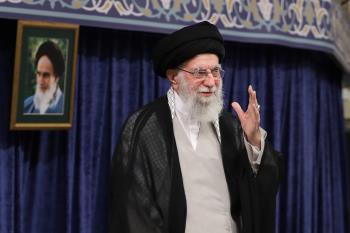Alwaght- US President Barack Obama's administration has apologized to Syria after US-led coalition hit Syrian army positions at a military airport that claimed lives of 80 soldiers near Deir ez-Zor, which is besieged by the ISIS terrorist group.
Russian Foreign Minister Sergei Lavrov has also confirmed that Washington apologized for the September 16 attack which drew condemnation from the Syrian government and Russia.
“Yes, they [the US] have apologized” for the airstrike on Syrian troops, which killed dozens, Russian Foreign Minister Sergei Lavrov said during an interview with the TV channel Rossiya-1. He added that the US has acknowledged the airstrike in Deir ez-Zor was a mistake and apologized to the Syria's President Bashar Assad via Russia.
The prompt apology by the US to Syria has far reaching implications and is a turning point in the five year conflict ignited by foreign-backed terrorists in the Arab state.
US officially recognized President Assad
First, the US apology to the Syrian President Bashar Al Assad in effect implies that Washington has once again officially recognized the Syrian president and his government.
Five years ago, the Syrian civil war began as protesters toppled governments across North Africa in the Islamic Awakening witnessed in Arab countries. Following the incidents, the US pursued a policy of regime change in Syria by supporting the opposition, which evolved into Takfiri terrorist groups.
President Barack Obama made the first call for regime change in Damascus in August 2011 by claiming to support what he termed as peoples “pursuit of a peaceful transition to democracy”. “For the sake of the Syrian people, the time has come for President Assad to step aside,” he said.
This recent apology implies fundamental changes in US policy towards Syria which includes the decision to again recognize President Assad and his government.
Major change in US policy towards Syria was witnessed recently when Moscow and Washington brokered a truce in the war-torn country. The deal indirectly implied US acceptance of Russia’s role as a key political and military actor in Syria. The Obama administration has evolved from opposing Russia’s year-old intervention in Syria to a frontline ally of Moscow as they jointly plan airstrikes against terrorist groups.
The acknowledgement by the US that its forces mistakenly targeted Syrian troops and passing a thereafter passing an apology through Moscow is implicit admission by the US failure of its unipolar policy. Indeed, Washington's apology is a pointer to its inability to act alone in Syria without involving principal actors, namely Iran and Russia.
Thus, the US hegemony in the region is rapidly declining following the failure of its stated objective in Syria and this will be replicated in the other conflicts in the West Asia region.
Over the years, Washington has pursued a policy of spreading its hegemony with the objective of weakening the competing nations so that they can be resurrected as “subservient colonies”.
But the events in Syria point to the strengthening of nations opposed to US hegemony namely Iran, Russia and Syria itself.
International Recognition
The US has been pursuing a policy of isolating Syria internationally for the last five years and thus it came as a surprise that Washington promptly apologized to a government and president it has continually demonized. The realization by the Obama administration that its efforts to isolate Syria internationally might have prompted the apology. The Syrian government continues to witness increased international recognition with many countries reopening diplomatic ties with Damascus.
Washington Ignores Allies in Region
Obama's prompt apology to Assad is bound to hurt already battered US allies in the region especially Saudi Arabia which is a major backer of terrorist groups bent on ousting the Syrian president.
The change in US aggressive approach on Syria apparently implies that Washington has realized that it will have to deal with the Syrian president in future and this is a major divergence from its allies in the region. Bashar al-Assad is now in a stronger position in the Syrian conflict while his opponents grow weaker and disunited.



























